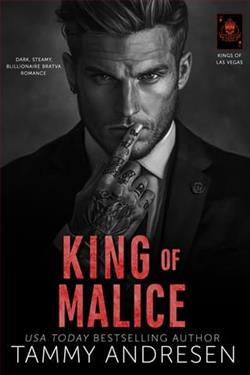Page 2 of The Road to Avalon
“It stinks,” Amhar remarked, forced closer to me by the crowds. “But oh, doesn’t it smell good.” His eyes sparkled with excitement.
Not quite how I’d have described it. Yes, almost everywhere in Dark Age Britain had a far more pungent smell about it than my old world in the twenty-first century, but breezy Din Cadan, on top of its high hill, had become the measure by which I gauged all other places. And I’d never have described Viroconium’s town stink as good.
“You’ll get used to it,” I said, waving away a girl trying to catch my eye with a tray of pies. “I tolerate it for the week of the Council, but I’m always glad to leave it behind.” I had more than a few bad memories of Viroconium that he didn’t need to know about.
Amhar’s incredulous look said he couldn’t believe I didn’t like it here, so I smiled and shrugged. “That needn’t stop you enjoying it, though.”
We turned down a quieter side-road, leaving behind some of the noise and stink, but not the alehouses. On the corner of every insula, the building block of Roman town planners, sat a tavern. As the day drew to a close, these bulged with men slaking their thirst before returning home to their wives.
Amhar’s eyes went hungrily, or should that have been thirstily, to every tavern we passed.
At the Domus Alba, where we usually stayed, a familiar face greeted us in the courtyard: Karstyn, once the chief cook for the house and now promoted to housekeeper and equipped with a generous ring of hefty keys that dangled importantly from the girdle of her gown, clanking as she moved.
“Milady Guinevere!” Her doughy face creased in a smile. “And Milord the King.” He was very much an afterthought, but as she’d known him since he was a boy, she could get away with that.
I didn’t stand on ceremony either and hugged her squishy body tight, planting a kiss on a cheek that had grown drier and wrinklier since the last time I’d seen her.
Arthur elbowed me aside with cheerful good humor and hugged her as well. “I hope you’ve been baking honey cakes for me. I’m ravenous.”
Her cheeks flushed with color, and she gave him the kind of coquettish smile most women brought out for him. “When were you ever not? I have indeed, Milord.”
Amhar cleared his throat.
I caught his arm and, pulling him forward, introduced him. “Twenty years ago, I helped Karstyn deliver your cousin Medraut– while your father and his brother quarreled over who was going to be king after your grandfather.” I smiled, mainly because with the passage of time, that frightening experience now felt as though it had happened to someone else. Well, Ihadbeen someone else back then. “You know that old story.”
Karstyn’s critical gaze ran over Amhar, as though assessing him. Then she humphed and pursed her lips, her eyes fixed on his.
I narrowed my eyes, suddenly wary.
Had she weighed our son up and found him wanting? And if so, why was I, his mother, who should have been biased in his favor, so aware that she might have done so? A mother was supposed to see no wrong in her children, yet I’d never felt like that, and especially not about Amhar. Perhaps I was as bad at parenting as Arthur.
“Which is my room?” Amhar asked, his tone abrupt. He turned away from Karstyn as though she merited no further interest, but the excitement had gone from his face as though he felt her disapproval.
I’d brought Amhar up to be more polite than this with servants, but alas, none of us had been able to teach him common sense.
Karstyn’s gaze sharpened. “This way, young lord.”
*
The first intimationwe had that things weren’t going as planned came that night, when Amhar didn’t join us for the sumptuous welcome feast Karstyn had prepared, consisting mainly of Arthur’s favorite foods.
“Have you seen my son?” Arthur asked Merlin the moment he arrived to join us in the spacious dining room.
Merlin, as unchanged as ever and even managing nowadays to look a bit younger than Arthur and me, which was annoying, shook his head. No doubt he had other more important things on his mind here in Viroconium. This was where the daughter he never saw lived with her mother, Morgana. “Not since we arrived. I knocked on his door and looked inside on my way here, but the room was empty.”
The same question went to Cei, Bedwyr and Gwalchmei in succession, as they appeared, smart in their clean clothes.
“I think I saw him heading toward the kitchen a while back,” Gwalchmei said. “Probably hungry. Boys that age always are.”
The frown on Arthur’s face deepened, and an uneasy feeling settled in my stomach. More than likely he’d gone straight out to explore the city, but as a country boy, that could be dangerous. If only we’d brought his older half-brother, Llacheu, who could have shown him around and kept an eye on him. Although Amhar probably wouldn’t have liked that.
“We’ll eat without him,” Arthur snapped and pulled out his seat at the head of the table. “He can go hungry for all I care.”
We settled ourselves for the first course of oysters, me with one eye on the open door onto the courtyard and no appetite. Amhar did not arrive.
Servants came to clear our plates, and Arthur crooked a finger at the oldest of them. With a worried look on his lined face, the man made a low, almost obsequious bow. “Milord?”
Arthur cleared his throat. “Can you go to the kitchens and see if my son is there, please.Hemay have decided he wants to eat in the kitchens, butIwant him here.” He paused. “If he’s there, you can tell him that.”















